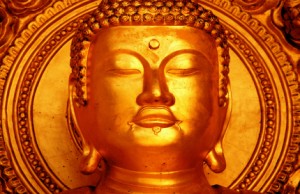
To be an interfaith minister means to preach and support people in all different spiritual and religious practices. It also means you have the power to introduce important religious holidays from other cultures into the worship of your Universal Life Church parishioners.
In this installment of our minister training series, we share the magic and importance of the Buddhist holiday Nirvana Day.
Nirvana Day, alsa called Parinirvana Day, is part of the Mahayana Buddhist tradition and is observed on a yearly basis. It celebrates the day that Buddha achieved enlightenment, usually on the 15th of February. It is mainly celebrated in eastern Asia though some Buddhist groups in other parts of the world also hold the day as holiday.
The focus of the holiday is on his transcendence of physical suffering and existence, but it is also the day that he died. In fact, these two events are intimately tied. Buddhists teach that enlightenment can be reached during one’s lifetime by completing the death and rebirth cycle of reincarnation. Once a being has completed their cycle and reached enlightenment, death brings the peace of true transcendence, or nirvana. Thus, on this day, Buddha was freed from the pains of worldly life and reached transcendence through his death.
Some compare the ideas behind Nirvana Day to that of Easter in Christianity. Though Jesus, like Buddha, dies on this holiday, the result of his death is, in the end, triumph over suffering and a time of celebration for his followers.
To mark and celebrate the day, Mahayana Buddhists often read descriptions of the last days of Buddha’s life. These passages are from the holy book Nirvana Sutra.
In an introspective sense, Nirvana Day is a time when Buddhists turn their thoughts and meditations to death. In the context of their religion, focusing on death means focusing on the impermanence inherent to the human condition.
Like many holidays, Nirvana Day is also a popular time to visit monasteries and temples. Because of this, many of these holy places hold special services or retreats around the time of Nirvana Day. In some places, it is a time for communities to bring donations of money and goods to holy places to support the nuns and monks who maintain the space.
Once you become ordained as interfaith minister of the Universal Life Church, you may want to bring the reflections of Nirvana Day to your parishioners. Think deeply or meditate about death as it reflects the unavoidable impermanence of human life. You become ordained to bring all the world’s religions together and share the universal truths that can be found therein. Bring the wisdom and insight of Nirvana Day to people of all spiritual paths by sharing these ancient Buddhist stories, and continue your personal journey of enlightenment with our minister training series.

